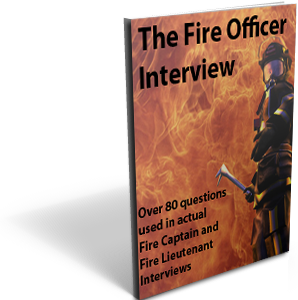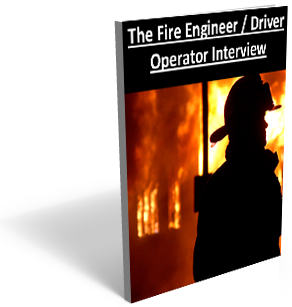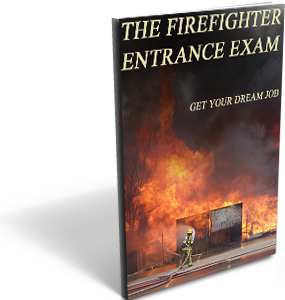I recently conducted a Fire Captain Interview at a neighboring department. We interviewed 9 candidates to fill 3 openings. All 9 of the candidates were very qualified, well prepared, and had similar backgrounds in the fire service. While each had areas where they really shined, it was very difficult to pick the top three. One specific question became the “decision maker” of the interview and decided who got promoted and who would try again next year. It is always amazing to think about how close and how competitive these interviews are. Candidates spend years training, seeking out education, and preparing for a promotion; and it all comes down to one question. Below is the specific question that really made the decision for the panel.
There is nothing special about this question, but rather the quality of their answers. Each candidate answered it satisfactorily however some went above and beyond. This question has been added to our Fire Officer Interview book, along with over 80 others. Below is the question and a paraphrased version of how one candidate answered it.
If you are not selected for this promotion how will you react? What are your future plans at this department?
Sir if I am not selected for this position I will feel like I have not achieved the goal that I set shortly after getting hired. My reaction will be a hardened resolve. I will begin studying for the next test immediately and continue seeking out every education and training opportunity that I can get my hands on. As you can see from my resume and training docket, I have attended many classes outside of our department and brought some great information back. None of that will change, I will continue to be a leader from my position as an Engineer and continue working to be a Captain. If I am not chosen my future plans will be to come out number one on the next test and get promoted then.
Follow up Question: What if you are not selected in the next round of promotions?
Sir I do not want to sound arrogant or cocky so please don’t misunderstand what I am trying to say. If I am not selected this time I will become even more motivated in my preparation. By next year’s promotions I will have more training, a completed bachelor’s degree, and even more time filling in as Captain. I believe after you see my performance, attitude and new qualifications over the year’s time that you will very much want me in a Captain’s position. If I am wrong, and I am not selected again, you can plan on seeing me again the following year in the number one spot.
Wow did that candidate take a risk with his answer to the follow up question! The reason it worked was his delivery. He looked the Chief straight in the eye and answered very respectfully and confidently. He spoke with such genuine desire and heart that I had no doubt in my mind he would continue scoring number one on the test until he was promoted. If his answer was delivered in any other manner it would have come off cocky, arrogant, and annoying. His risk was rewarded and he by far had the best answer to the question.
This question and over 80 others are in our Fire Officer Interview Book. It is full of insightful answers like this one for fire captain and fire lieutenant interviews.



